Why The Political Stakes Are So High In Dhamnagar?
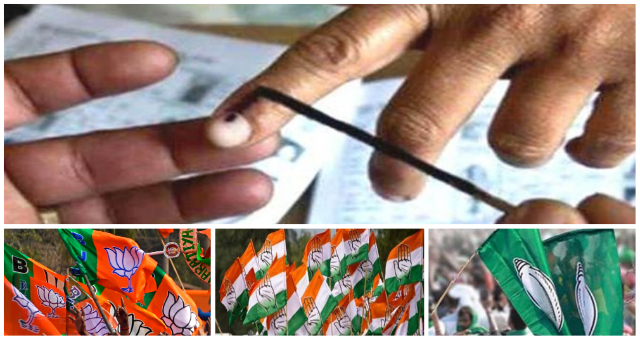
Bhubaneswar: Dhamnagar has evidently become the talking point in different circles as it braces up for the high-octane by-election on Thursday (November 3). But what is so special about the bypoll in this hitherto not-so-special assembly constituency in Odisha’s Bhadrak district that all stakeholders have seemingly upped the ante?
Sympathy, swabhimaan, women’s card, Dalit factor, revolt, rhetoric, revival, allegations & counter allegations, money overflow, muscle power, administrative machinery misuse, parochialism, poll monitor’s role and conflict of interest – Dhamnagar is apparently seeing it all, thereby turning the bypoll into a no-holds-barred battle. Here’s a look at 10 factors that have raised the stakes, especially political, ahead of the D-Day:
1. Sympathy versus sympathy: In a rare political showdown, at least two, Suryabanshi Suraj and Rajendra Das, of the five candidates are seemingly benefitting from voters’ sympathy in this by-election. While a good number of the 2.38 lakh electors are understandably sympathetic to Suraj because it was his legislator father Bishnu Charan Sethi’s death that necessitated the bypoll, there are others who feel BJD was not fair in denying ticket to Das, a former MLA who lost the 2019 elections to Sethi by 4,625 votes. Incidentally, Dhamnagar has seen two bypolls in the past (in 1961 and 1990) and on both occasions, kin of the deceased MLA won.
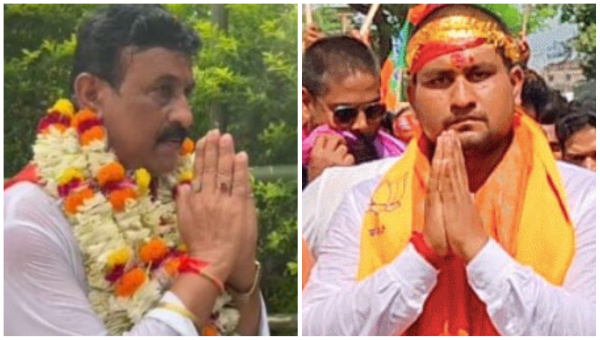
2. Revolt & self-respect: Das joining the poll fray marked a key departure from BJD’s bypoll history as the regional party had never seen such a revolt. That the rebellion could mar their prospect, especially when the Conch party has been enjoying electoral success with consummate ease, was possibly lost on Naveen & Co. Das has helped his cause by playing the ‘swabhimaan’ (self-respect) card quite effectively, pushing BJD to the wall.
3. Mission Shakti experiment: The BJD’s experiment of giving political leadership to women self-help group members has come under severe test in Dhamnagar. Though it comfortably tasted success in 2019 when it ensured Mission Shakti member Pramilla Bisoi’s victory from Aska Lok Sabha seat, the same might not happen for Abanti Das in Dhamnagar where the dynamics are very different. Success or failure could have a major impact on BJD’s bid to create a new narrative from being a political party to becoming a social movement; it might even determine Naveen’s ticket distribution during the 2024 twin elections.
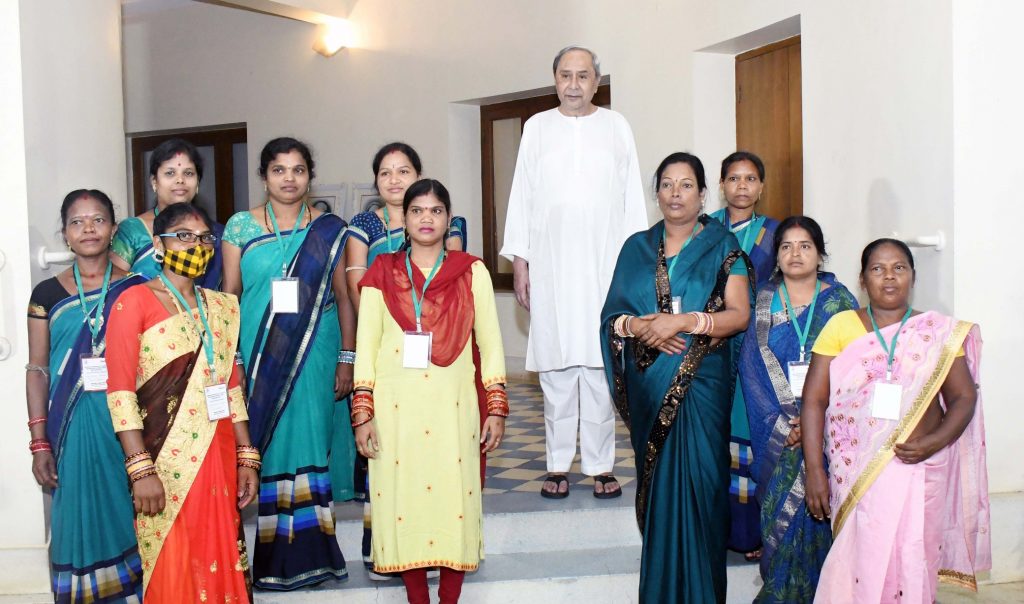
4. Do-or-die for BJP: The saffron brigade has left no stone unturned to retain the seat with their top leaders, including Union minister Dharmendra Pradhan, campaigning extensively and putting in all resources at their command. Having lost all five byelections – Bijepur, Balasore, Tirtol, Pipili and Brajrajnagar – panchayat and municipal polls since the 2019 general elections drubbing in Odisha, the BJP not only needs a shot in the arm to resurrect its attempt to grab power in the eastern state but, more importantly, also requires a win to project itself as a possible alternative to BJD. Its bonhomie with BJD in recent years, particularly post-2019 polls, has caused such harm to its support base that Dhamnagar has become nothing sort of do-or-die for the Lotus party.
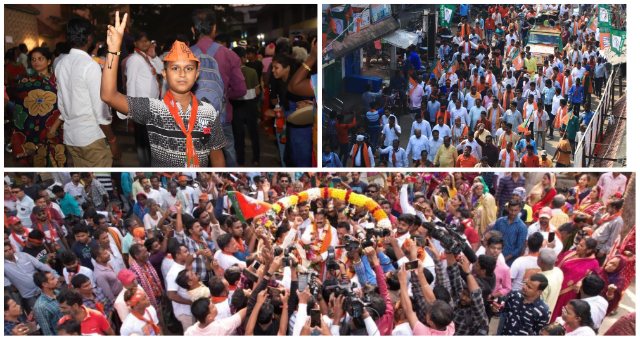
5. Prestige issue for BJD: While BJD is known for giving its best in every election, Dhamnagar has posed a big challenge to the ruling party. The fact that BJP has a strong organisation in the constituency coupled with Das’ rebellion has made it very tough for the Naveen-led outfit; so much so that the party has engaged almost all wherewithals at its disposal. The poll outcome could impact not just its future strategies, especially those pertaining to playing the women card, but also possible future dissension and revolts. That it has turned into a prestige battle was amply demonstrated when Naveen, through virtual mode on October 31, addressed 13 rallies and assured he would personally take care of Dhamnagar and ensure 5 years’ work is done in 18 months.
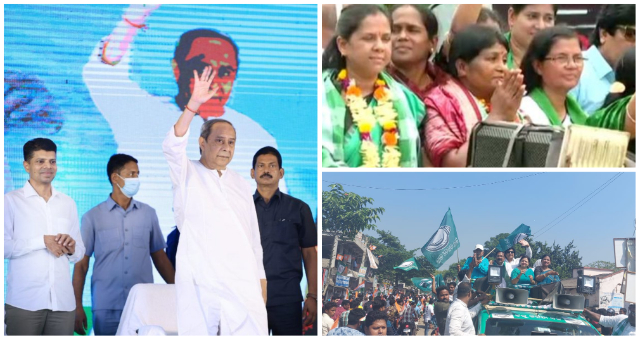
6. Revival hopes for Congress: The Hand party, too, has tried its best, though it might not prove enough considering its weakened base and inability to match the resources pumped in by rivals. Still, senior party leaders have managed to project a united front and campaigned for their candidate Baba Harekrushna Sethi. The party has won from Dhamnagar 7 times since 1951. However, its base gradually weakened post-1995 when it last won.
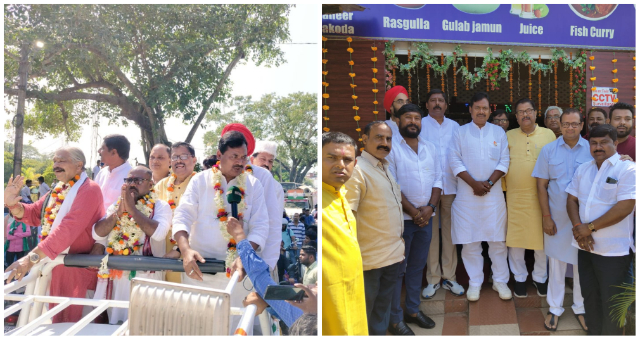
7. Caste affinities, religious sentiments & geographical loyalties: Over a quarter of the electorate in this reserved (SC) constituency belong to scheduled caste community while 6.4 per cent of the voters are Muslims. While Rajendra and Abanti belong to the Gokha (fisherman) caste and are natives of the same gram panchayat (Kanpada) in Tihidi block, Suraj and Harekrushna belong to Dobhi (washerman) caste. The stiff contest has resulted in caste, religion and regional loyalties mattering more than they normally do at hustings.
8. Unequal development and parochial considerations: Possibly for the first time in recent electoral history in Odisha comparisons of development in Dhamnagar in particular and Bhardak in general with neighbouring regions, especially Jajpur district, were drawn during electioneering. Uneven government spending, power equations in distribution of resources and even BJD leaders from Jajpur calling the shots in Bhadrak have caught attention. The BJP, in fact, has been highlighting how the BJD dispensation has been favouring Jajpur with regard to irrigation, Baitarani flood control and tourism facilities, putting Dhamnagar and other nearby areas at a disadvantageous position.
9. From Bhubaneswar to Delhi: The bypoll fight even reached Delhi Durbar with BJD and BJP moving the Election Commission in the nation’s capital. Dharmendra himself led a party delegation to the poll monitor’s office, in what was seen as a pressure tactic and an attempt to bring the Odisha chief electoral officer (CEO) under the lens. Whether CEO Sushil Kumar Lohani holding additional charge of secretary, panchayati raj, amounted to a conflict of interest came up for debate, even as the political contenders repeatedly traded charges regarding distribution of money, muscle power, misuse of administrative machinery etc.
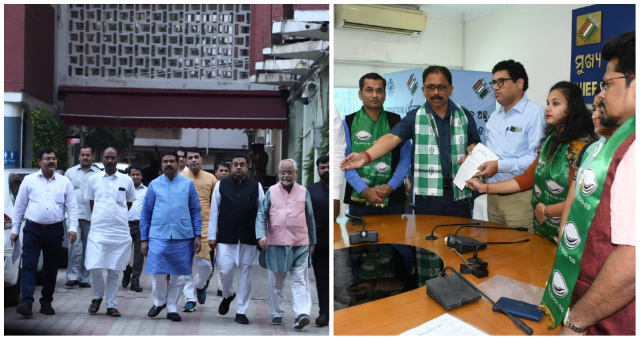
10. Newsrooms divided: With the politicosphere heating up, there was enough grist for the news mills. Though the byelection would have no effect on the stability of Naveen government, the importance the media has attached to it has been quite high. Television channels in particular have not only gone all-out in their coverage but apparently exposed their own political preferences in the process, making obvious the polarisation of late being seen in Odisha media.

Comments are closed.